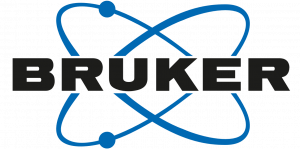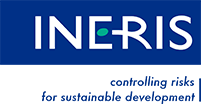Several important organisations have agreed to participate in the TRIAGE-NET; a group which will be closely involved with the demonstration of TRIAGE on public buildings and on transport networks in the later stages of the project. These organisations have a wide range of interests and expertise, from national agencies to instrumentation companies and include:
- The Swedish Environmental Protection Agency
- SLB Analys (Stockholm Air and Noise Analysis)
- SMHI: Swedish Meteorological and Hydrological Institute
- EMPA: Swiss Federal Laboratories for Materials Science and Technology
- Tekniska verken
- Bruker Optic GmbH
- Siemens AG
- INERIS
 The Swedish Environmental Protection Agency is the public agency in Sweden that is responsible for environmental issues. The Agency carries out assignments on behalf of the Swedish government relating to the environment in Sweden, the EU and internationally. TRIAGE is a project of great interest to the Agency since Clean Air is one of its many specific environmental objectives and air quality monitoring is an important part of its remit.
The Swedish Environmental Protection Agency is the public agency in Sweden that is responsible for environmental issues. The Agency carries out assignments on behalf of the Swedish government relating to the environment in Sweden, the EU and internationally. TRIAGE is a project of great interest to the Agency since Clean Air is one of its many specific environmental objectives and air quality monitoring is an important part of its remit.
 SLB Analys (Stockholm Air and Noise Analysis) is a department at the Environmental Administration in Stockholm that is responsible for monitoring the air environment in the city. SLB Analys also operates a regional system for air monitoring on behalf of the Eastern Swedish Air Safety Association.
SLB Analys (Stockholm Air and Noise Analysis) is a department at the Environmental Administration in Stockholm that is responsible for monitoring the air environment in the city. SLB Analys also operates a regional system for air monitoring on behalf of the Eastern Swedish Air Safety Association.
![]() SMHI The Swedish Meteorological and Hydrological Institute is an expert agency under the Ministry of the Environment in Sweden. Through unique expertise in meteorology, hydrology, oceanography and climatology, SMHI contributes towards greater public welfare, increased safety and a sustainable society. TRIAGE is of particular relevance to the Air Quality research unit, which carries out work with the objective of supporting society, the authorities and decision makers with research and development.
SMHI The Swedish Meteorological and Hydrological Institute is an expert agency under the Ministry of the Environment in Sweden. Through unique expertise in meteorology, hydrology, oceanography and climatology, SMHI contributes towards greater public welfare, increased safety and a sustainable society. TRIAGE is of particular relevance to the Air Quality research unit, which carries out work with the objective of supporting society, the authorities and decision makers with research and development.
 EMPA, the Swiss Federal Laboratories for Materials Science and Technology, conducts cutting-edge materials and technology research. Its research and development activities focus on meeting the requirements of industry and the needs of society. TRIAGE is well aligned with the objectives of the Laboratory for Air Pollution/Environmental Technology, which aims to help reduce anthropogenic air constituents relevant to climate change, human health, ecosystems, materials and infrastructure.
EMPA, the Swiss Federal Laboratories for Materials Science and Technology, conducts cutting-edge materials and technology research. Its research and development activities focus on meeting the requirements of industry and the needs of society. TRIAGE is well aligned with the objectives of the Laboratory for Air Pollution/Environmental Technology, which aims to help reduce anthropogenic air constituents relevant to climate change, human health, ecosystems, materials and infrastructure.
 Tekniska verken is a municipal company serving c. 260,000 private and business customers around Linköping, Sweden. Services include electricity, lighting, water, district heating, district cooling, waste management, broadband, biogas, efficient energy solutions as well as electricity trading. Tekniska verken is building new plants for energy recovery, quality assuring the production of drinking water, developing waste management processes and much more. It promotes development in the direction of its vision – to build the world’s most resource-efficient region. It is as part of this objective that Tekniska verken will participate in the TRIAGE demo to measure air quality in the local area around Linköping.
Tekniska verken is a municipal company serving c. 260,000 private and business customers around Linköping, Sweden. Services include electricity, lighting, water, district heating, district cooling, waste management, broadband, biogas, efficient energy solutions as well as electricity trading. Tekniska verken is building new plants for energy recovery, quality assuring the production of drinking water, developing waste management processes and much more. It promotes development in the direction of its vision – to build the world’s most resource-efficient region. It is as part of this objective that Tekniska verken will participate in the TRIAGE demo to measure air quality in the local area around Linköping.
 Bruker Optik GmbH With over 6,000 employees at over 90 locations on all continents, Bruker is one of the world’s leading analytical instrumentation companies. Its products range from life science molecular research to industrial applications. One of its many business units focuses on air analysis and so TRIAGE is highly relevant to Bruker’s research.
Bruker Optik GmbH With over 6,000 employees at over 90 locations on all continents, Bruker is one of the world’s leading analytical instrumentation companies. Its products range from life science molecular research to industrial applications. One of its many business units focuses on air analysis and so TRIAGE is highly relevant to Bruker’s research.
![]() Siemens AG is a global technology powerhouse that brings together the digital and physical worlds to benefit customers and society. One of the many areas of expertise in gas analytics. The analysis of process gases is very complex. To obtain exact results on the composition of the gases, the measurement results must be very precise. Siemens’ interest in TRIAGE relates to this requirement for innovative analysis technology, tailor-made plant construction and application-specific optimisation, as well as measures to ensure compliance with legal requirements.
Siemens AG is a global technology powerhouse that brings together the digital and physical worlds to benefit customers and society. One of the many areas of expertise in gas analytics. The analysis of process gases is very complex. To obtain exact results on the composition of the gases, the measurement results must be very precise. Siemens’ interest in TRIAGE relates to this requirement for innovative analysis technology, tailor-made plant construction and application-specific optimisation, as well as measures to ensure compliance with legal requirements.
 INERIS, The French National Institute for Industrial Environment and Risks, is an industrial and commercial public establishment under the aegis of the Ministry of the Environment. The Institute’s mission is to contribute to the prevention of risks caused by economic activities to health, environment, and the safety of people and goods. It conducts research programs with the aim of improving understanding of the phenomena that are likely to lead to risk situations or damage to health and the environment, and of further developing its expertise in prevention. It works to expand its scientific and technical capabilities in the fields of accidental risk, chronic risk, and ground-level / subterranean risks (mining), and makes them available to public authorities, local authorities, and businesses to help them make the decisions best suited to improving environmental safety.
INERIS, The French National Institute for Industrial Environment and Risks, is an industrial and commercial public establishment under the aegis of the Ministry of the Environment. The Institute’s mission is to contribute to the prevention of risks caused by economic activities to health, environment, and the safety of people and goods. It conducts research programs with the aim of improving understanding of the phenomena that are likely to lead to risk situations or damage to health and the environment, and of further developing its expertise in prevention. It works to expand its scientific and technical capabilities in the fields of accidental risk, chronic risk, and ground-level / subterranean risks (mining), and makes them available to public authorities, local authorities, and businesses to help them make the decisions best suited to improving environmental safety.